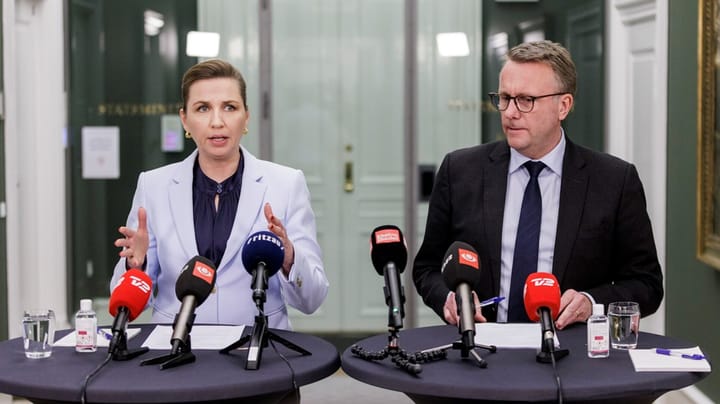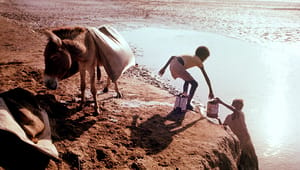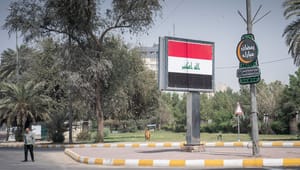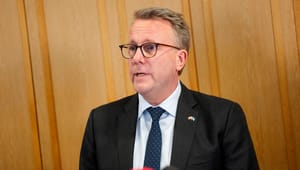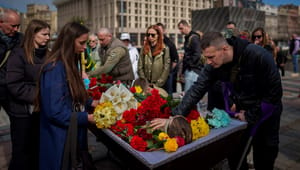Paneuropæisk alliance: Fri bevægelighed for flygtninge

DEBAT: Mange EU-borgere drager fordel af den frie bevægelighed, men hvorfor ikke også flygtninge, der kommer til EU? Sådan spørger Michael Diedring, generalsekretær for ECRE (indlægget er på engelsk).

David Laungaard Lose
Marketing AnalystAf Michael Diedring
Generalsekretær ved The European Council on Refugees and Exiles (ECRE)
As an EU citizen, I am extremely lucky. If I find a job in another EU country, I can move there to work. If I would like to broaden my horizons and study in another EU country, I can do so, quite easily. I’m not alone. The freedom to travel, study and work anywhere in the EU is what the EU means to most Europeans and over 14 million EU citizens reside in another Member State.
But what if I’m a refugee?
The freedom of movement
While a person’s asylum claim is being assessed, if they move to another country, they can be sent back to the country in which they first arrived under the Dublin Regulation. That country is often not the one where they can best integrate. The system currently makes decisions regarding where people should live based largely on arbitrary fact of their point of entry into the EU.
Mød denne måneds debatpanel her.
Udviklingsdebatten på Altinget: udvikling har til formål at fokusere og styrke den udviklingspolitiske debat i Danmark. Løbende inviterer Altinget: udvikling eksperter, politikere, fagfolk og interesseorganisationer til at debattere udvalgte emner og/eller problemstillinger inden for udviklingsområdet.
Bland dig gerne i debatten ved at sende en mail til [email protected].
If my asylum application has been accepted, I’ve been now recognised as a refugee in an EU country meaning that I had to flee my country due to war or persecution and have managed to get through the obstacle course that is the Common European Asylum System, where I might have been detained, had to sleep rough, or had to wait for years for a decision on my claim.
Nevertheless, I’ve managed to come out on the other side of it and my status as a refugee is recognised. Now I want to settle in the country where I know the language, have family or where I can find a job, but I can’t. Refugees are not legally allowed to move and settle freely in another EU country even after they have been granted asylum by another Member State. Why should a German speaking engineer be stuck in Bulgaria when there’s family already in Germany?
Movement by people has been around as long as people have existed and who would want to give up their right to travel freely throughout Europe?
Michael Diedring
Generalsekretær, ECRE
Rejected in all EU States
As it currently stands, asylum seekers whose claim is rejected in one country, will most likely be considered as rejected in all EU States. Interestingly, a positive decision is good only for the Member State making that decision. It seems that EU States trust each other enough to make the right negative decision but not the right positive decision.
If Member States would recognise a common asylum status that is ‘valid throughout the Union’, people could move and settle in another EU Member State and continue to benefit from the protection they have just been granted.
Always on the move
The amended Long Term Residence Directive allows recognised refugees to move to another EU Member State after five years and only if they meet certain conditions. But five years is a long time to see your life passing before your eyes, away from your family members, long-term work opportunities or countries where you may already speak the language.
People are on the move, no matter what rules are in place. Movement by people has been around as long as people have existed and who would want to give up their right to travel freely throughout Europe?
The aim of our policies should be to allow people to be self-reliant and contribute to society. This is what anyone wants, to feel and be seen as a person with choices. If we want to enable refugees to become self-reliant and actors of their own destiny, while remaining true to the EU’s core value of free movement, the EU needs to start recognizing the right of people to make their own life choices and allow them to decide where they want to live.
